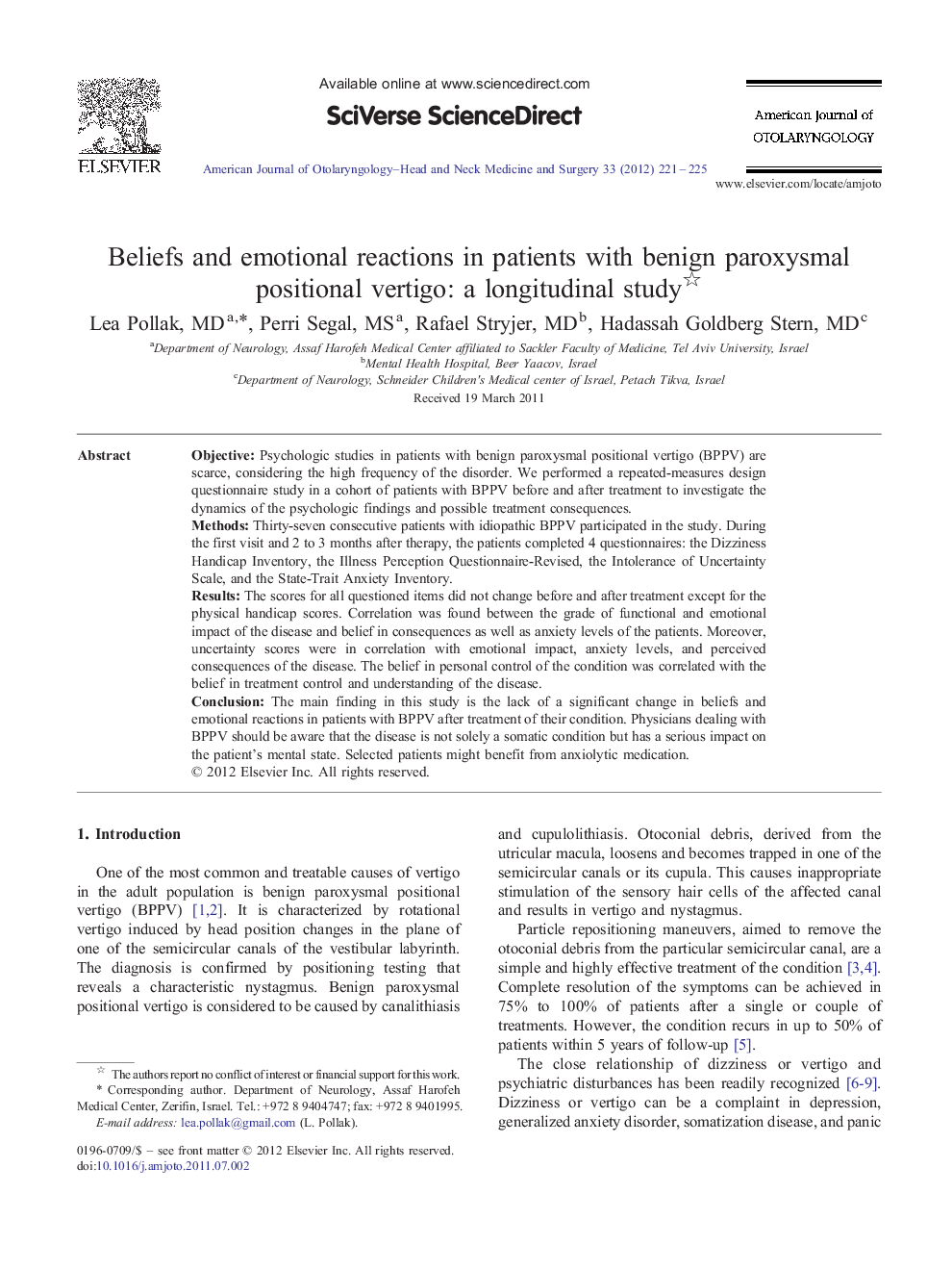| Article ID | Journal | Published Year | Pages | File Type |
|---|---|---|---|---|
| 4103780 | American Journal of Otolaryngology | 2012 | 5 Pages |
ObjectivePsychologic studies in patients with benign paroxysmal positional vertigo (BPPV) are scarce, considering the high frequency of the disorder. We performed a repeated-measures design questionnaire study in a cohort of patients with BPPV before and after treatment to investigate the dynamics of the psychologic findings and possible treatment consequences.MethodsThirty-seven consecutive patients with idiopathic BPPV participated in the study. During the first visit and 2 to 3 months after therapy, the patients completed 4 questionnaires: the Dizziness Handicap Inventory, the Illness Perception Questionnaire-Revised, the Intolerance of Uncertainty Scale, and the State-Trait Anxiety Inventory.ResultsThe scores for all questioned items did not change before and after treatment except for the physical handicap scores. Correlation was found between the grade of functional and emotional impact of the disease and belief in consequences as well as anxiety levels of the patients. Moreover, uncertainty scores were in correlation with emotional impact, anxiety levels, and perceived consequences of the disease. The belief in personal control of the condition was correlated with the belief in treatment control and understanding of the disease.ConclusionThe main finding in this study is the lack of a significant change in beliefs and emotional reactions in patients with BPPV after treatment of their condition. Physicians dealing with BPPV should be aware that the disease is not solely a somatic condition but has a serious impact on the patient's mental state. Selected patients might benefit from anxiolytic medication.
